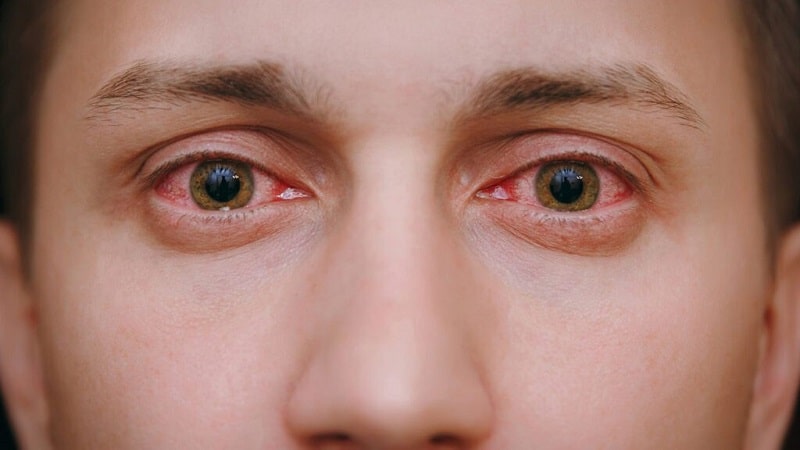
Allergic conjunctivitis, commonly known as pink eye or red eye, refers to the inflammation of the conjunctiva, a thin layer of cells that covers the white part of our eyes. This condition occurs when the eyes, specifically the conjunctiva, come into contact with allergens. Upon contact with these allergens, the immune system reacts excessively, leading to the release of histamine.
Histamine then initiates inflammation by irritating the nerve endings and also stimulates increased tear production. Allergic conjunctivitis is a frequently encountered condition, but it is important to note that it is not contagious. It represents the body's response to substances it perceives as harmful.
Homeopathy offers effective treatment for allergic conjunctivitis, with remedies that yield fruitful results. This approach effectively addresses symptoms such as inflammation, pain, redness, and other discomforts associated with allergic conjunctivitis. The selection of homeopathic remedies for this condition is based on a thorough examination of the individual's symptoms, ensuring personalized treatment.
One of the significant advantages of homeopathic remedies is their natural composition, ensuring safety and gentleness in their application. You can rest assured that these remedies do not pose any concerns regarding side effects. At Wellness Homeo Clinic International, constructive remedies for allergic conjunctivitis are provided, facilitating quick relief from the condition. Moreover, homeopathy aims to address the root cause of allergies, leading to long-term prevention and management of allergic reactions.
Wellness Homeo Clinic International treats Allergic Conjunctivitis with Constitutional Homeopathy. Personalized treatment focuses on symptoms, providing effective and long-lasting relief, addressing the root causes for improved well-being.
Allergic conjunctivitis, a common condition characterized by inflammation of the conjunctiva (the thin, transparent layer covering the white part of the eye), can be classified into several types based on their underlying causes and symptoms:
Identifying the specific type of allergic conjunctivitis is important for determining the most appropriate treatment approach and managing symptoms effectively. Consulting with a healthcare professional can help in accurate diagnosis and tailored treatment.
The symptoms of allergic conjunctivitis may vary in severity from person to person and can be triggered by specific allergens such as pollen, dust mites, pet dander, or certain chemicals. If you suspect you have allergic conjunctivitis, it is advisable to consult a healthcare professional for an accurate diagnosis and appropriate treatment.

No, allergic conjunctivitis is not a contagious condition. It occurs as a result of an individual's specific allergic reaction to allergens they are sensitive to, such as dust or seasonal pollen. It is not transmitted from person to person like an infectious disease.
Bacterial conjunctivitis, commonly known as pink eye, occurs when the eye(s) become infected with bacteria. This type of conjunctivitis is a result of a bacterial infection in the eyes. On the other hand, allergic conjunctivitis, also known as pink eye, is caused by exposure to allergens that trigger reactions in the eye(s). In this case, the pink eye is a response to allergens affecting the eyes.
Typically, the condition affects both eyes, although there are rare instances where it only affects a single eye. For instance, if an allergen comes into contact with just one eye, it may result in the condition occurring exclusively in that eye.
Indeed, the presence of a clear and watery discharge is a frequently observed symptom in cases of allergic conjunctivitis.
The improvement of symptoms in allergic conjunctivitis is contingent upon the type and underlying cause of the condition. Typically, as exposure to the allergen is reduced and/or appropriate medication is initiated, symptoms begin to alleviate.